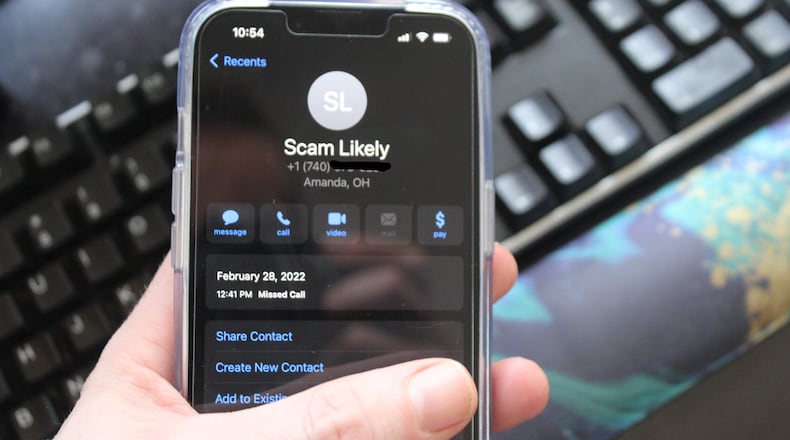The main problem is that joining the Do Not Call Registry does nothing to prevent scammers and disreputable companies from phoning Ohioans.
The Ohio Attorney General’s office recently said it helped shut down a robocall operation that made more than 69 million illegal robocalls to Ohioans, including tens of millions of calls that were to phone numbers on the Do Not Call list.
“The Do Not Call list is effective in reducing unwanted calls from those who access the DNC list,” said Hannah Hundley, a public relations specialist with the Ohio Attorney General’s Office. “Many legitimate companies download and abide by the DNC list, but those who are sending illegal calls simply disregard the DNC list.”
The federal Do Not Call Registry was created two decades ago to try to help consumers who were inundated with unwanted telemarketing calls.
Businesses and telemarketers are required to remove phone numbers added to the Do Not Call Registry from their call lists and must stop calling these numbers within 31 days of their registration dates, says the Federal Communications Commission.
Consumers can register by calling 1-888-382-1222 from the phone numbers they wish to add to the registry or by visiting http://www.donotcall.gov.
The Do Not Call Registry now has more than 245 million registered phone numbers, including more than 9.7 million in Ohio, according to the FTC.
But the FTC in the last fiscal year received more than 3 million complaints across the nation about unwanted sales calls made to phone numbers on the registry.
Nearly 145,500 of those complaints originated from Ohio, which had more complaints per capita than every U.S. state except Delaware, according to the FTC. More than 12,000 of the complaints originated from consumers in Montgomery, Miami, Greene, Clark, Champaign, Butler and Warren counties.
Telemarketers can only call phone numbers on the Do Not Call Registry if they belong to consumers with whom the companies have done business in the past 18 months, according to the Office of the Ohio Consumers’ Counsel.
Telemarketers must stop calling when consumers request it; however, charities, political organizations and survey companies are still allowed to call numbers on the registry, the Ohio Consumers’ Counsel said. Registry rules don’t apply to those organizations.
Robocalls
This month, Ohio Attorney General Dave Yost and seven other attorneys general across the nation announced they have obtained judgments that essentially shut down a robocall operation that flooded Americans with billions of illegal robocalls, including more than 69 million calls to Ohioans.
“Stopping annoying robocalls is a lengthy process, but this judgment is a reminder that we can cut them off,” Yost said in a prepared statement. “There are enough distractions in life — let’s not let spam callers interrupt our lives anymore.”
Robocalls are automated calls with prerecorded messages, and robocalls that try to sell products or services are illegal unless the companies received written permission from individual consumers to contact them that way, the FTC said.
The only other legal robocalls are informational, such as when a company calls to confirm an appointment or service or a cancellation of those things.
Yost said his office helped bring legal action that will prevent the two business partners responsible for a massive number of robocalls from working with companies that do telemarketing or that make robocalls.
Yost said more than 32 million of the 69 million robocalls the duo unleashed on Ohioans were to numbers on the Do Not Call list.
Unless they consented to receive robocalls, Ohioans should be very wary of any robocall they receive because there’s a good chance they are scams and if nothing else it suggests the companies have questionable sales practices, the FTC said.
The FTC says consumers who get illegal robocalls should hang up immediately.
The agency says consumers should not press any buttons to be taken off a call list or try to talk to a live person. This could lead to more unwanted calls.
The Ohio Attorney General’s office says that consumers who receive unwanted calls can complete an Unwanted Call Notification Form at www.OhioProtects.org.
The information they provide will be shared with the Robocall Enforcement Unit, which uses the reports to identify trends and protect Ohioans.
The Federal Communications Commission accepts complaints regarding telemarketers and telecommunications issues, and consumers can make complaints at www.fcc.gov/complaints.
Consumers can file complaints about unwanted calls to the FTC by visiting www.donotcall.gov.
About the Author

